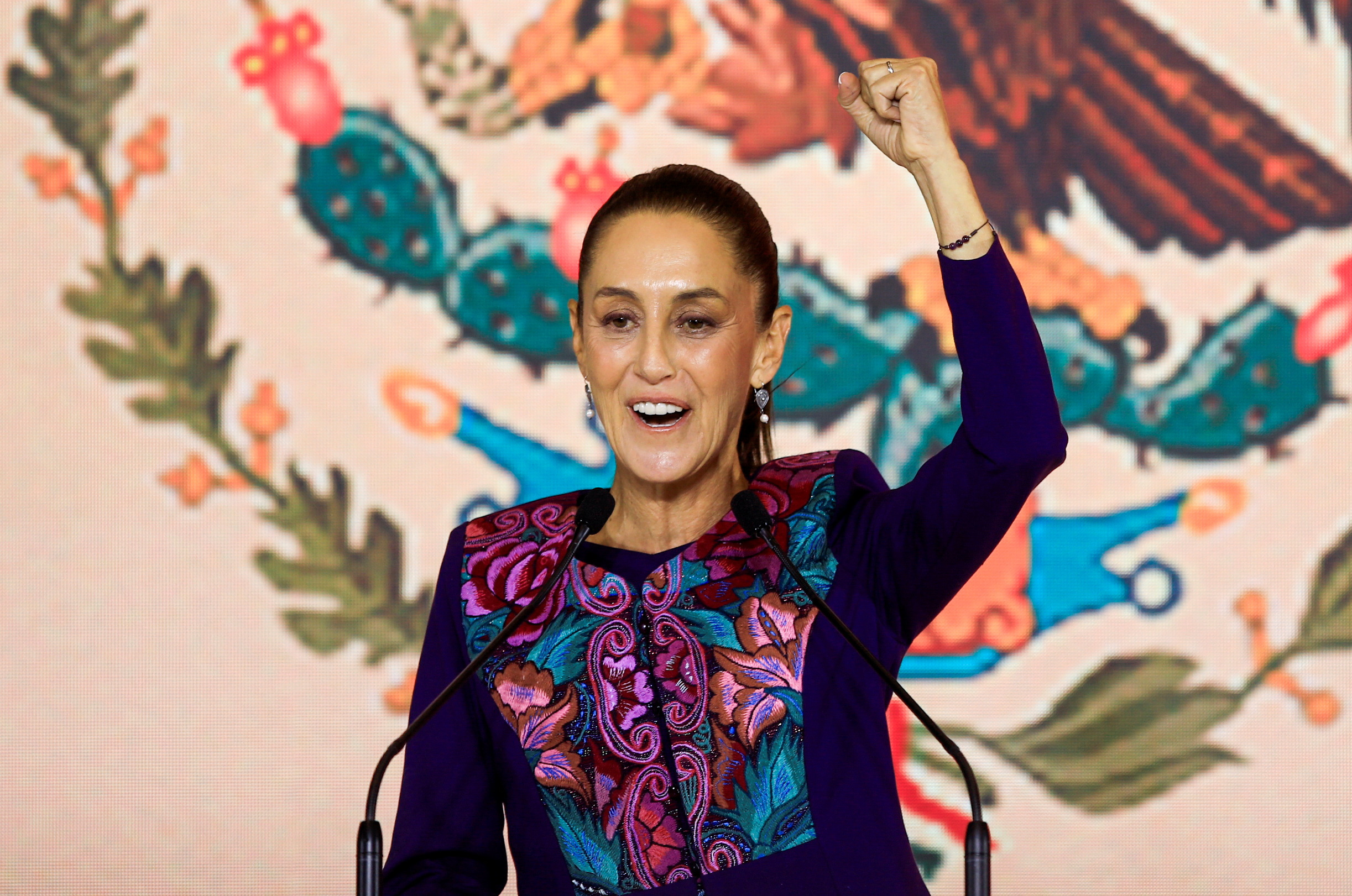Mexico’s First Female President
Informational article by Anvitha Devakonda

Born in 1962 in Mexico City, Claudia Sheinbaum Pardo grew up in a secular Mexican Jewish family, surrounded by science and a deep sense of social responsibility. Her father, Carlos Sheinbaum Yoselevitz, was a chemist of Ashkenazi Jewish descent, while her mother, Annie Pardo Cemo, is a biologist. Together, they fostered a deep love for learning and a strong sense of justice in her. Sheinbaum’s background laid the foundation for a path that led her from academia to ultimately reshaping Mexico’s political landscape. This election wasn’t just about securing a political victory, it was a defining moment for a nation hungry for change. When the results were announced, the streets of Mexico erupted in celebration not for the results, but for a moment of hope that had been building for generations and had finally seemed possible.
Claudia Sheinbaum’s journey is defined by intellect, perseverance, and unwavering determination. Before becoming Mexico’s first female and first-ever Jewish president, she was a scientist, earning a doctorate in energy engineering at Universidad Nacional Autónoma de México (UNAM) and researching sustainability at Lawrence Berkeley National Laboratory. (LBNL, Berkeley Lab) Her work on energy efficiency even contributed to the Nobel Peace Prize-winning efforts of the IPCC in 2007. Her mind was shaped by science, but she was drawn to politics. As mayor of Mexico City between 2018 and 2023, she faced the day-to-day challenges of governing: pollution, inequality, and the crushing weight of responsibility that comes with ruling one of the world's great cities. But alongside these apparent challenges, she also faced something less obvious: the quiet resistance that comes with being a woman in power. The constant scrutiny, the second-guessing, and the unspoken barriers were all part of the challenge. In a country where women in leadership have long been overlooked, her victory was not just a political achievement, it was deeply personal.
Sheinbaum’s campaign wasn’t just about policies. It was a heartfelt message to a nation worn down by violence and economic struggles. She didn’t just talk about numbers. Claudia Sheinbaum addressed the painful reality of femicide, promising real change, not just statistics. She spoke of creating economic opportunities for those who had been forgotten and of taking down the corruption that had shattered people’s trust. It was clear this was more than just a political goal, it was a mission to lift Mexico again. She understood the depth of the country's struggles and was driven by a commitment to create real change, not just in policy but in the lives of those who had suffered the most.
Her victory wasn’t just a political milestone, it was a deeply personal moment for millions of Mexicans who saw in her a leader who understood their struggles. For women who had been told leadership wasn’t for them, for families tired of violence and economic hardship, for young people dreaming of a better future, Sheinbaum’s election felt like a turning point. But the hardest part was yet to come. The weight of expectations is heavy, and as she steps into the presidency, she must not only deliver on her promises but also navigate the powerful legacy of her predecessor. The movement that brought her here is strong, but so are the challenges ahead.
Claudia Sheinbaum’s presidency marks both continuity and change for Mexico. As a close ally of Andrés Manuel López Obrador (AMLO), she inherits the legacy of his Cuarta Transformación (Fourth Transformation) movement, which had a very strong focus on social programs, state intervention in the economy, and decreasing inequality. Yet, while López Obrador led with charisma and populist rhetoric, Sheinbaum brings a different energy, one shaped by science, data, and methodical problem-solving. She isn’t the kind of leader who commands attention with fiery speeches. Instead, she works through precision and persistence. Her challenge now is to take the foundation her predecessors built and forge her own path, proving that progress doesn’t have to be loud to be powerful.
As Claudia Sheinbaum steps into the presidency, she carries with her the hopes of many who see her leadership as a chance for real change. With the legacy of years’ worth of men behind her, Sheinbaum now faces the task of moving Mexico forward while addressing the deep challenges the country continues to face. While her leadership style may be quieter and more focused on data and strategy, it is precisely this approach that will define her presidency. The road ahead will require practical solutions to complex problems, but if her career is any indication, Sheinbaum is prepared to take on the task with the same dedication and determination that has marked her journey so far.
